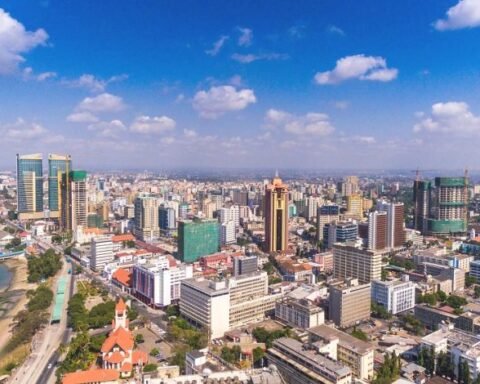Tanzania is taking a bold step toward digital transformation with plans to establish its first laptop manufacturing plant.
The facility, which will produce Tanzanite-branded laptops, is designed to support ICT education across primary and secondary schools, while also advancing the country’s industrialization goals.
Led by Tanzania’s ICT Commission, the initiative recently gained momentum following talks with QuadGen Wireless Solutions Pvt. Ltd., an Indian ICT equipment producer. The project aligns with the African Union’s vision of fostering technology manufacturing within the continent, reducing reliance on imports and boosting local capacity.
Speaking to parliamentarians in Dodoma on January 24, 2025, Dr. Nkundwe Mwasaga, Director General of the ICT Commission, highlighted the transformative potential of the project. “This isn’t just about making laptops—it’s about equipping the next generation with tools that prepare them for a thriving digital economy,” he said.
The Tanzanite laptops, along with locally produced smart boards, are expected to improve digital learning infrastructure across the country. This is especially critical in rural areas, where educational resources and access to technology remain limited.
Education and technology experts have applauded the move, calling it a significant step toward bridging Tanzania’s digital divide. “Affordable, locally-made laptops can revolutionize access to technology, especially in underserved communities,” said Professor Grace Macha, a researcher in education technology. “This initiative ensures that every child, no matter where they are, has a chance to engage with the digital world.”
Globally, countries like China, the United States, and South Korea dominate laptop production. Currently, Tanzania imports thousands of units annually to meet growing demand. Establishing a local manufacturing plant will reduce dependency on imports, create jobs, and strengthen the economy.
Also Read; Trump Administration Defines
Gender as Male and Female
Tanzania has made strides in integrating ICT into its education system, but challenges remain. Schools in remote areas often lack the tools and infrastructure needed for effective digital learning. By producing laptops locally, the country aims to address these gaps, ensuring students are better prepared for the demands of a tech-driven world.
The decision to focus on ICT education also aligns with Tanzania’s broader goal of fostering innovation and entrepreneurship among its youth. Dr. Mwasaga noted that the plant’s impact will extend beyond education. “This project will unlock opportunities for tech startups, promote research, and position Tanzania as a leader in ICT development in the region,” he said.
Tanzania’s investment in locally manufactured technology could not have come at a better time. By prioritizing both access and affordability, the government is ensuring that no student is left behind in the march toward a digital future.
With construction plans underway, the Tanzanite laptop plant signals a brighter, tech-savvy future for Tanzania one where innovation and opportunity go hand in hand.







